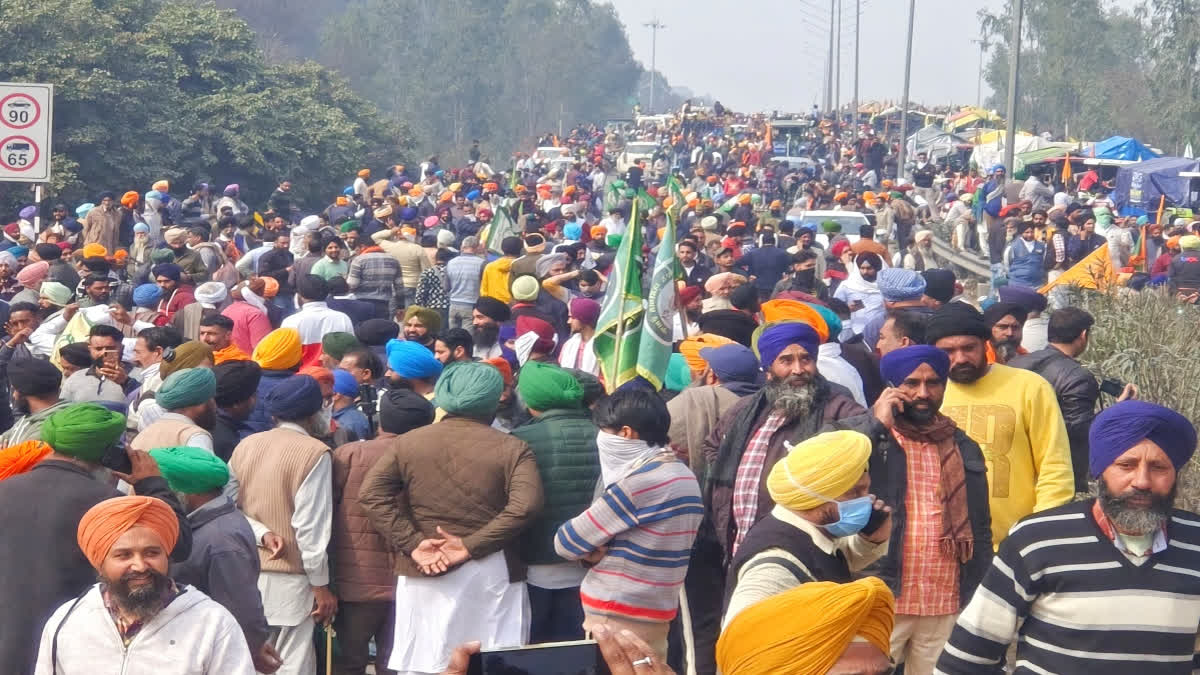New Delhi: Tens of thousands of Indian farmers are protesting for guaranteed crop prices, renewing a movement that succeeded in getting contentious new agricultural laws repealed in 2021.
Earlier this week, they began marching toward New Delhi, but their efforts so far have been blocked by authorities, who have used tear gas, detained a number of farmers and heavily barricaded entry points into the capital.
Talks between the farmers and government ministers have failed to reach a breakthrough after three rounds and they have agreed to continue their discussions this weekend. Meanwhile, some farmer and trade unions plan a countrywide rural strike on Friday.
Authorities are determined to control the new demonstrations to avoid a repeat of the 2021 protests, in which tens of thousands of farmers camped outside the capital for over a year, enduring a harsh winter and a devastating COVID-19 surge.
Why are famers protesting again?
The farmers, who rode on tractors and trucks from neighboring Haryana and Punjab states, say the government has failed to meet some of their key demands from the previous protests.
In 2021, Prime Minister Narendra Modi repealed a set of agricultural laws that the protesting farmers said would hurt their incomes.
But the leaders of the current march say the government hasn't made progress on other important demands such as guaranteed crop prices, a doubling of farmers' income and loan waivers. The demand for legislation that will guarantee minimum prices is at the heart of their protests.
Currently, the government protects agricultural producers against any sharp fall in farm prices by setting a minimum purchase price for certain essential crops, a system that was introduced in the 1960s to help shore up food reserves and prevent shortages. The farmers are demanding this be extended to all farm produce, and not just essential crops.
Even though the latest talks on Thursday ended without consensus, ministers afterward told local media that it was a "positive discussion" and that they were keen to make progress.
"We discussed with the aim of finding a resolution to the issues. The ministers said they require time," Sarwan Singh Pandher, one of the farm leaders, told the Times of India.
